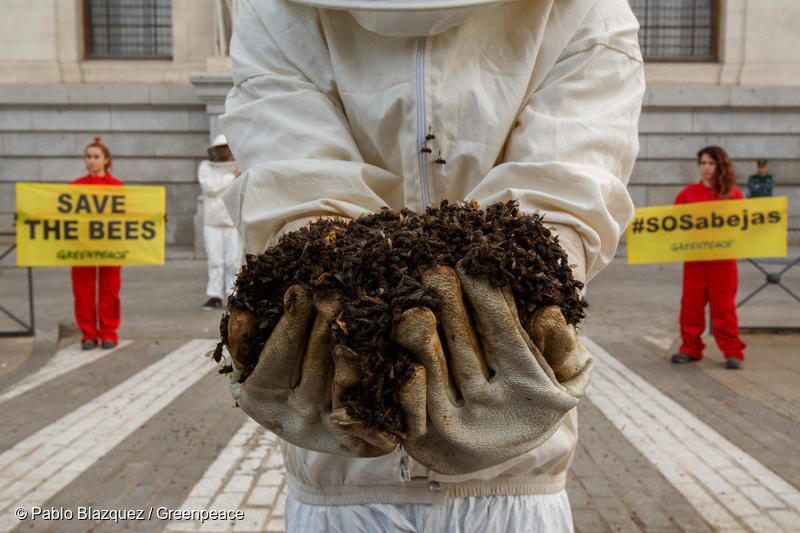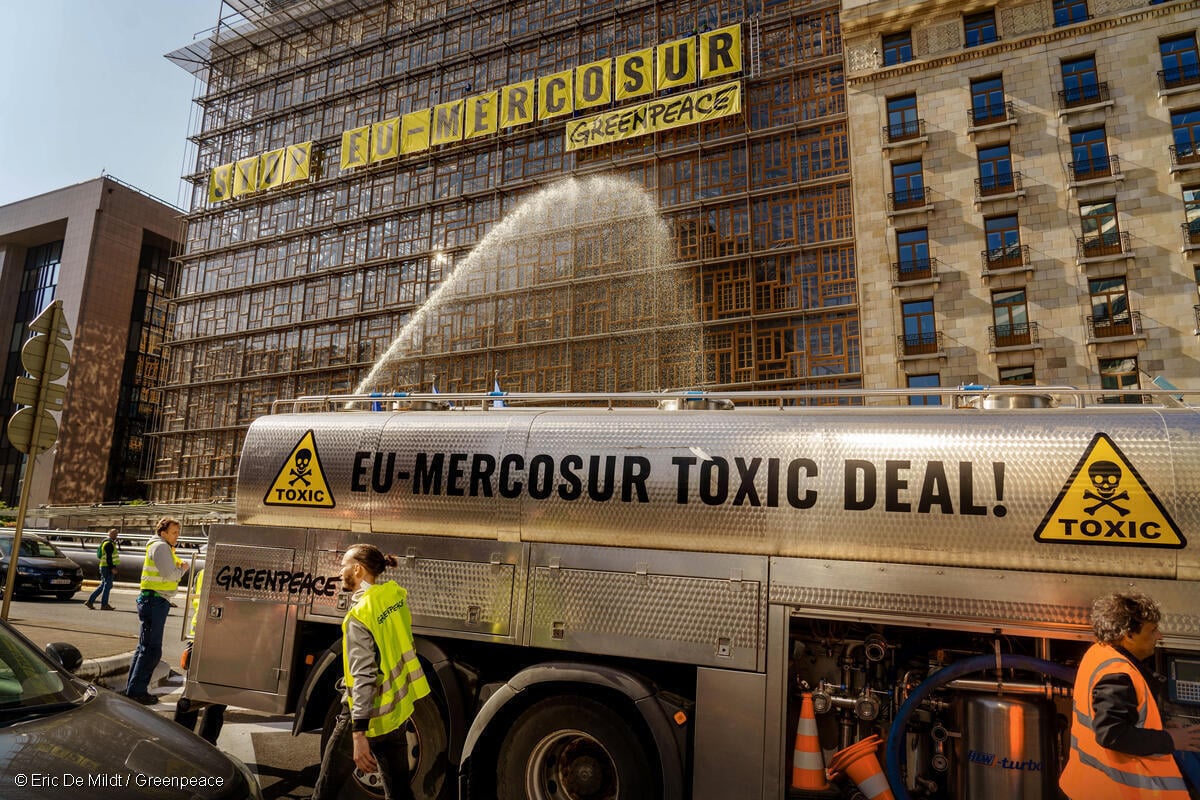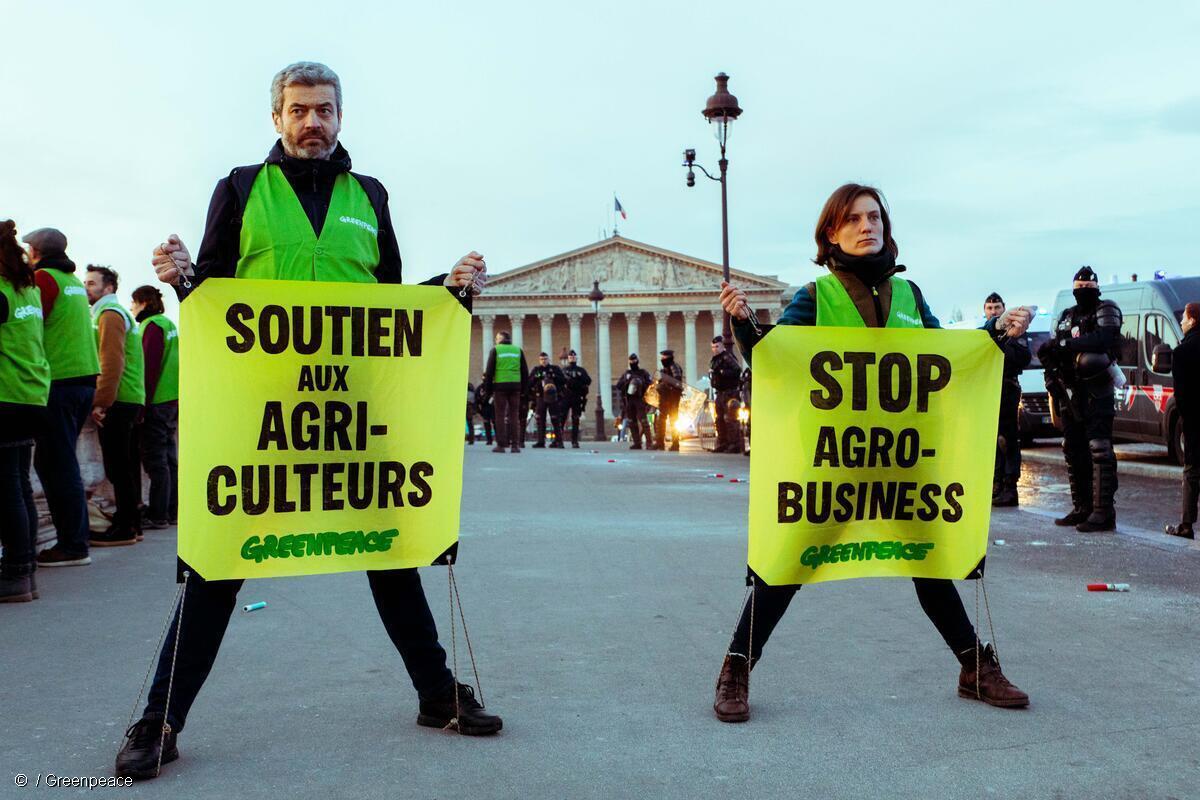Retreat from safety standards that led to ban of three neonicotinoid pesticides
Brussels, 23 January 2019 – Under pressure from pesticide producers and governments, the European Commission is planning to scrap bee-safety standards that led to a ban of three bee-killing pesticides, according to a leaked plan.
Representatives of European governments are expected to discuss the plan at a meeting in Brussels on Thursday and Friday.
A new report [1] by the Greenpeace Research Laboratories reveals that the EU has only applied comprehensive testing standards in the assessments of three insecticides belonging to the neonicotinoid class of pesticides, leading to their near-total ban in 2018. But it has not used them in the evaluation of similar insecticides. The assessments of the three neonicotinoids covered risks to honeybees and wild bees (bumblebees and solitary bees), including impacts from long-term exposure. EU assessments of other insecticides were either based on less stringent criteria, or only covered risks to honeybees.
Greenpeace EU food policy director Franziska Achterberg said: “Ministers like to present themselves as bee heroes to people at home, but behind closed doors in Brussels they do the dirty work of pesticide producers. After throwing their weight behind a ban on three neonicotinoids last year, ministers now want to make it impossible to ban pesticides that are just as dangerous to bees. If these governments get their way, farmers and gardeners could end up replacing banned chemicals with other harmful pesticides.”
The governments of Italy, Spain, the Netherlands, Portugal, Greece, Ireland, Slovenia and the UK all publicly supported the ban of the three neonicotinoids, but are now opposing the application of the same standards to other pesticides. Other governments, including those of Germany, Luxembourg and Slovenia, also supported the ban but are yet to comment on the Commission’s plan to derail the application of the same standards to other pesticides. Only France and Austria are currently opposing the Commission’s plan.
The European Food Safety Authority (EFSA) developed higher bee-safety standards in 2013, based on a request from the European Commission. The new scheme, described in a comprehensive guidance document, considers risks to adult honeybees and honeybee larvae, as well as risks to bumblebees and solitary bees. It takes into account different routes of exposure to pesticides, including from spray deposits or dust particles, from contaminated pollen and nectar and from contaminated water. The previous regime only considers effects on honeybees resulting from direct exposure and risks arising from spraying.
Until last year, the Commission tried to garner support for the higher bee-safety standards, but was opposed by many European governments.
Under the Commission’s latest plan, the EU would only assess acute toxicity to honeybees (i.e. effects resulting from a single contact with a chemical by ingestion or by physical contact). It would ignore chronic toxicity (i.e. effects resulting from continuous or repeated exposure) and effects on bee larvae. Potential risks to wild bees would not be assessed until the guidance has been revised by EFSA at some unspecified future date.
Note:
[1] Miller et al, 2019 – Kathryn A. Miller, Kirsten F. Thompson, Franziska Achterberg and David Santillo: Pesticides and bee health. An evaluation of the application of the 2013 European Food Safety Authority Bee Guidance document as a mechanism to protect bees from agricultural pesticides. Greenpeace Research Laboratories Technical Report (Review) 01-2019.
Contacts:
Franziska Achterberg – Greenpeace EU food policy director: +32 (0) 498 362403, [email protected]
Greenpeace EU press desk: +32 (0)2 274 1911, [email protected]
For breaking news and comment on EU affairs: www.twitter.com/GreenpeaceEU
Greenpeace is an independent global campaigning organisation that acts to change attitudes and behaviour, to protect and conserve the environment and to promote peace. Greenpeace does not accept donations from governments, the EU, businesses or political parties.




